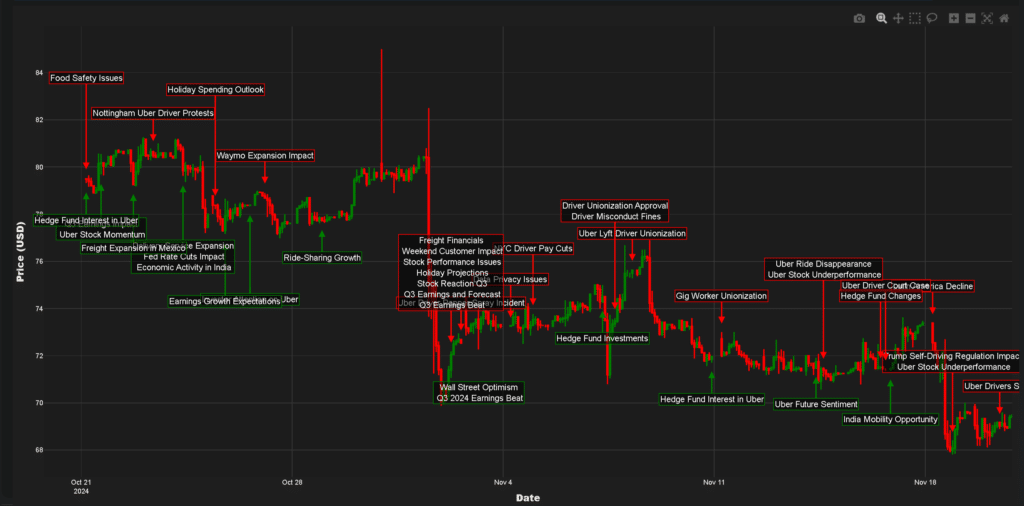Improving Florida School Lockdown Response: Addressing Generational Gaps

Table of Contents
Understanding Generational Differences in Lockdown Preparedness
Effective lockdown response requires understanding the strengths and weaknesses of different generations within our schools. This understanding is crucial for developing inclusive and effective training programs.
Millennial and Gen Z Teachers & Students
Millennials and Gen Z individuals, having grown up in a digitally saturated world, possess significant digital fluency. This presents both opportunities and challenges in emergency situations.
- Increased use of social media for communication: While social media can facilitate rapid communication, it also presents risks of misinformation spread and potential security vulnerabilities.
- Familiarity with online safety protocols: Their understanding of online security can be leveraged to develop secure communication channels during lockdowns.
- Potential for distraction: Over-reliance on technology could inadvertently hinder swift and decisive action during a crisis.
Effective Millennial teacher preparedness and Gen Z student response requires integrating technology responsibly into lockdown drills and emergency communication protocols. This includes training on responsible social media usage during crises and ensuring reliable access to secure communication platforms. Technology-assisted lockdown drills should become a standard practice, reflecting the reality of communication in this digital age.
Baby Boomer and Gen X Teachers & Staff
Baby Boomers and Gen Xers bring invaluable experience and a strong foundation in established emergency procedures to the table. Their calm demeanor and adherence to protocol can be significant assets. However, adapting to new technologies and evolving communication methods can present challenges.
- Experience with established protocols: Their institutional knowledge and experience with traditional response methods form a valuable bedrock for emergency planning.
- Potential challenges adapting to new technologies: Training must focus on bridging this technology gap, ensuring that experienced staff are comfortable and confident using modern communication tools.
- Valuable institutional knowledge: This knowledge should be actively captured and shared to inform current and future protocols.
Successfully adapting lockdown protocols for older generations necessitates a tailored approach that balances respect for their experience with the need for technological proficiency. Bridging generational communication gaps is paramount, creating an environment where all voices are heard and valued. Focusing on experienced staff training that incorporates modern technologies and communication methods is crucial.
Enhancing Communication and Training Strategies
Effective training and communication are the cornerstones of a successful school lockdown response. These must be tailored to cater to the specific needs and learning styles of different generations.
Multi-Generational Training Programs
Florida schools need inclusive lockdown training programs designed to engage all generations. These programs must respect varying learning styles and communication preferences.
- Interactive workshops: Hands-on training that allows for active participation and collaborative problem-solving.
- Blended learning approaches (online and in-person): Offering flexibility to accommodate different learning preferences and schedules.
- Role-playing scenarios: Simulations that allow staff to practice their responses in a safe environment.
- Simulations incorporating technology: Practicing the use of communication tools and technologies in realistic scenarios.
Investing in multi-generational emergency preparedness training programs is an investment in the safety and well-being of all students and staff. Tailored training for Florida schools should consider specific regional contexts and vulnerabilities.
Utilizing Technology for Improved Communication
Technology offers powerful tools for enhancing communication during lockdowns. However, equitable access and digital literacy training are essential.
- School-wide alert systems: Immediate and widespread notification systems are crucial for efficient emergency response.
- Secure communication apps: Encrypted communication channels ensure privacy and prevent misinformation from spreading.
- Regular technology training: Ensuring all staff are proficient in using the chosen communication technologies.
- Addressing digital equity issues: Providing support and resources to ensure all staff and students have equal access to necessary technology.
Integrating technology-enhanced emergency response requires careful planning and consideration of accessibility. Establishing secure communication during lockdowns should be a priority, and proactive efforts to improve digital literacy in school safety are critical.
Fostering Collaboration and Intergenerational Learning
Building bridges between generations is crucial for creating a cohesive and effective emergency response team.
Mentorship Programs
Establishing intergenerational mentorship programs can facilitate valuable knowledge transfer and build strong working relationships between experienced and newer staff.
- Pairing experienced staff with newer staff: Mentors can share their expertise and institutional knowledge.
- Creating opportunities for peer learning: Encouraging open dialogue and collaboration among staff of all generations.
- Establishing shared best practices: Documenting and disseminating successful strategies to improve overall preparedness.
Knowledge sharing in school safety is vital for continuous improvement. Collaboration in emergency preparedness leads to more effective and adaptable protocols.
Regular Drills and Feedback Mechanisms
Consistent drills and robust feedback mechanisms ensure that protocols remain relevant and effective.
- Regular lockdown drills: Frequent practice reinforces procedures and identifies areas for improvement.
- Post-drill feedback sessions: Providing opportunities for constructive criticism and refinement of response strategies.
- Surveys to gather input from all staff and students: Ensuring that the perspectives of all stakeholders are considered.
- Continuous improvement cycles: Regularly reviewing and updating procedures based on feedback and emerging best practices.
Effective lockdown drills, coupled with feedback mechanisms for improved response, are key to continuous improvement in school safety.
Conclusion: Improving Florida School Lockdown Response: Addressing Generational Gaps
Effectively improving Florida school lockdown response requires acknowledging and addressing the unique perspectives and capabilities of different generations. By implementing inclusive lockdown training programs, leveraging technology for improved communication, and fostering intergenerational mentorship, we can build a more resilient and responsive emergency response system. Regular drills, coupled with robust feedback mechanisms, are essential for continuous improvement in school safety. By embracing these strategies and actively participating in improving Florida school security and enhancing emergency response in Florida schools, we can create safer learning environments for all generations. Let's work together to address generational gaps in school safety and build stronger, safer schools for the future.

Featured Posts
-
 Exclusive Donors Offered Vip Military Events Alongside Trump
May 17, 2025
Exclusive Donors Offered Vip Military Events Alongside Trump
May 17, 2025 -
 Can Uber Stock Survive A Recession Expert Analysis
May 17, 2025
Can Uber Stock Survive A Recession Expert Analysis
May 17, 2025 -
 Analyzing Ubers Stock Recession Resistance And Future Growth
May 17, 2025
Analyzing Ubers Stock Recession Resistance And Future Growth
May 17, 2025 -
 Resilience In Luxury Real Estate A Safe Harbor For High Net Worth Investors During Market Downturns
May 17, 2025
Resilience In Luxury Real Estate A Safe Harbor For High Net Worth Investors During Market Downturns
May 17, 2025 -
 New York Knicks Face A Crucial Choice With Landry Shamet
May 17, 2025
New York Knicks Face A Crucial Choice With Landry Shamet
May 17, 2025
Latest Posts
-
 Donald And Melania Trumps Relationship Fact Vs Fiction
May 17, 2025
Donald And Melania Trumps Relationship Fact Vs Fiction
May 17, 2025 -
 Lawrence O Donnell Exposes Trumps Live Tv Humiliation
May 17, 2025
Lawrence O Donnell Exposes Trumps Live Tv Humiliation
May 17, 2025 -
 The Trump Marriage A Timeline Of Ups And Downs
May 17, 2025
The Trump Marriage A Timeline Of Ups And Downs
May 17, 2025 -
 Witness Trumps Humiliation A Lawrence O Donnell Show Clip
May 17, 2025
Witness Trumps Humiliation A Lawrence O Donnell Show Clip
May 17, 2025 -
 Melania Trump Current Status And Role As Former First Lady
May 17, 2025
Melania Trump Current Status And Role As Former First Lady
May 17, 2025
